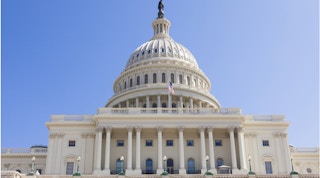
Cookies in use
International Human Rights Defense Act

The International Human Rights Defense Act of 2023 would build an unprecedented framework into U.S. diplomacy to protect LGBTQ+ rights worldwide.
118th Congress: H.R. 1833; S. 1007
The Problem
Lesbian, gay, bisexual, transgender, and queer (LGBTQ+) people around the world continue to face discrimination, violence, and bigotry. Sixty-eight countries criminalize same-sex sexual relations. That means that more than one-third of United Nations Member States criminalize consenting, adult, same-sex sexual relations. In up to nine countries, same-sex sexual relations may be punishable by death, and so-called anti-LGBTQ+ “propaganda” laws inhibit LGBTQ+ advocacy in at least three countries.
Reports from various governments, international bodies, watchdogs, and advocacy organizations have documented hostility toward LGBTQ+ citizens in every region of the world. These violations include murder, rape, torture, death threats, extortion, imprisonment, and loss of employment and access to health care, as well as restrictions on freedoms of assembly, press, and speech.
What is the International Human Rights Defense Act?
The International Human Rights Defense Act would build a framework into U.S. diplomacy to protect LGBTQ+ rights worldwide. The bill would make preventing and responding to discrimination and violence against the LGBTQ+ community a foreign policy priority and permanently create a Special Envoy, who may be appointed with the rank of Ambassador, within the State Department and who would serve as principal advisor to the Secretary of State on LGBTQ+ issues. The Special Envoy would, among other duties, coordinate LGBTQ+ policies for all bureaus and offices of the State Department and in the international programs of other federal agencies; represent the United States in diplomatic matters relevant to the human rights of LGBTQ+ people; and work to ensure that the needs of LGBTQ+ people seeking resettlement and protection are incorporated into federal government policy.
In addition, the Special Envoy would be responsible for developing and helping implement a U.S. global strategy to prevent and respond to discrimination and violence against LGBTQ+ people.
The first-ever Special Envoy for the Human Rights of LGBTI Persons was appointed in 2015, and President Biden appointed Jessica Stern to be the U.S. Special Envoy to Advance the Human Rights of LGBTQI+ Persons. However, this position has not been codified into law and was never filled by the Trump administration. The International Human Rights Defense Act would make the position statutory, which would prevent any future administration from being able to eliminate it.
The bill would also require the State Department to include LGBTQI+ human rights as a required section in its annual Country Reports on Human Rights Practices. While that has been State Department practice for a number of years, it is subject to the whims of each administration and is by no means guaranteed.
Finally, the legislation would authorize funding at the State Department and USAID for programs that would prevent and respond to criminalization, discrimination, and violence against LGBTQ+ people internationally.
Status of the Bill in the 118th Congress?
The International Human Rights Defense Act was reintroduced on March 30, 2023, in the House of Representatives Rep. Robert Garcia (D-CA-42) and Rep. Sara Jacobs (D-CA-51), and in the Senate by Sen. Edward Markey (D-MA).
Current Status of the Bill?
The International Human Rights Defense Act has not yet been reintroduced in the 119th Congress.
Last Updated: December 18, 2024
- Topics:
- Global
- Laws & Legislation
Love conquers hate.
Image:

